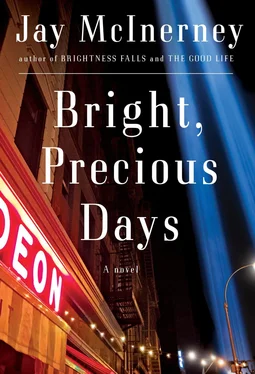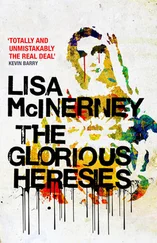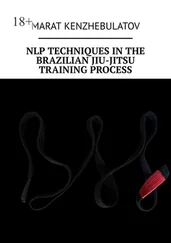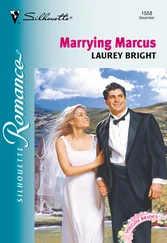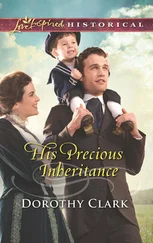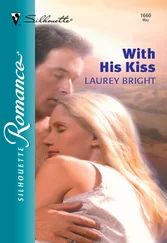“So does that make Hilary our mother?”
It was all Corrine could do to maintain her composure.
“Aunt Hilary helped, but Mom is your only mother,” Russell said. “She’ll always be your mother.”
“She can’t take us away?”
“No one can take you away from us,” Russell said. “You’ll live with us until you’re so sick of us that you can’t wait to go off to college and pretend you never had any parents at all.”
—
So impressed was she with Russell’s performance that night, and the night before, that she felt an upwelling of the love and desire she sometimes feared had gone extinct, and that had lately been eclipsed by Luke’s reappearance. But tonight she felt a rekindling of the belief that this was her soul mate, the one person on the planet made especially for her, her Platonic twin. She hadn’t felt so close to him in years; when they were finally settled in bed, she kissed his neck and worked her way down his chest, eager to express her gratitude. Russell seemed surprised at first, moaning and arching his back, quickly becoming hard, and she realized it had been months since she’d done this, and when she felt him on the verge, she slid up his chest and slipped him inside and didn’t mind that he came almost immediately — took it as compliment, basically — and she fell asleep feeling as happy and fulfilled as she could remember being in a very long time.
ONCE AGAIN IT WAS THE HOLIDAY SEASON, that ceaseless cocktail party between Thanksgiving and New Year’s, when the city dressed itself in Christmas colors and flaunted its commercial soul, when the compulsive acquisitiveness of the citizenry, directed outward into ritual gift giving, was transmuted into a virtue and moderation into a vice. Mendicant sidewalk Santas rang bells beside buckets dangling from chains on tripods. Doormen were suddenly eager to perform their jobs, opening taxi doors and carrying shopping bags, which were abundant, and maîtres d’hôtel greeted their regulars with extra obsequiousness. As the end of the tax year approached, the philanthropic impulse became more acute. The directors of great museums and charitable foundations awaited the mail as eagerly as did the bankers and analysts and brokers of Wall Street, whose bonuses would soon flood the streets with gold. Fantastical landscapes materialized in the windows of Saks and Bergdorf and Lord & Taylor, and legions of actors and dancers answered the call to service, signing up with the catering companies that orchestrated and provisioned the great corporate and private holiday fetes. The children became manic, fueled by sugary treats and the anticipation of gifts; the lions on guard outside the New York Public Library donned spiky wreaths. Redolent of mothballs, furs and tweeds were liberated from storage. Furtive blondes draped in sable and mink emerged from the backseats of black Mercedes and Escalades, darting across the open tundra of the sidewalk into the refuge of Madison Avenue boutiques. The once-verdant island called Mannahatta was reforested, coniferous thickets springing up on sidewalks and in vacant lots — dense stands of Scotch pine, blue spruce and balsam fir tended by upstaters wrapped in layers of down and fleece.
Russell loved this time of year more than any other, loved the city most when it was imbued with the familiar rituals of his youth, amplified or distorted as they might be, loved sharing it all with the children. For six weeks every year he nearly suspended judgment, choosing not to be offended by the blatant commercialism and the clichés, by the mercenary undercurrent of the bonhomie. He perused the Times food section for the latest wisdom on preparing the traditional Thanksgiving bird, varying from Pierre Franey and Craig Claiborne’s roast young turkey with giblet gravy to R. W. Apple’s brine-cured roast turkey and Mark Bittman’s improbable, and not entirely successful, forty-five-minute turkey. The question of whether or not to stuff the bird was a perennial stickler. This year he decided to brine and slow-cook the turkey, a heritage breed ordered two months in advance from a farm near Woodstock, and to cook his mother’s traditional pecan stuffing on the side. The cast in their loft included, in addition to the Lee and Reynes families, both Washington’s mother and Veronica’s. Much to everyone’s relief, Corrine’s mother had chosen to invite Hilary and Dan to her house in Stockbridge for Thanksgiving after her arguments for a reconciliation fell on deaf ears, thus sparing the Calloways the inevitable vodka-fueled domestic drama.
Then, with increasing frequency, a series of outings: The Nutcracker at Lincoln Center; family lunch at ‘21’ with the Salvation Army singing carols; Russell’s and Corrine’s respective office parties; the Reyneses’ Christmas cocktail party at Doubles. And then the selection of the tree — a ritual that engaged all of Russell’s aestheticism and sense of ceremony, even as it delighted the kids. He’d inherited this fixation from his own father, who had sometimes visited three or four purveyors in suburban Detroit before finding the ideal evergreen. They walked the three blocks over to the tree sellers on the corner of Chambers and Duane. The notion of a portable forest inspired Russell to tell the children an abbreviated version of Macbeth, and about how the thane’s demise was ordained when the prophecy of Birnam Wood moving to Dunsinane was confirmed.
“But how did the witches know?” Jeremy asked.
“That’s their job,” Russell said.
“There must have been an awful lot of soldiers to chop down a whole forest and move it.”
“Well, I’m not sure they actually moved the whole forest. They probably just chopped off some branches to camouflage themselves.”
“That sounds kind of improbable,” Storey said.
“Hey, who’s the editor in this family, anyway?” Russell said. “Let’s have a little suspension of disbelief here. And let’s pick a great tree.” He surveyed the offerings with a critical eye. A stickler for symmetry, he rejected Jeremy’s first choice, a sort of droopy Scotch pine, as being obviously lopsided. Storey’s first choice was crooked and lamentably sparse on one side. Eventually they started picking obvious rejects just to torment him, bursting into laughter even before he had a chance to unleash scornful commentary. Despite these provocations, he eventually found the perfect tree, a seven-foot blue spruce, which he lugged, bound in twine, back to the loft. He spent the rest of the day washing off the fragrant sap.
The evening was devoted to decoration, Russell first stringing the lights and then setting the kids loose with tinsel and finally hanging glass balls and assorted handmade ornaments, including some monstrosities they’d crafted at school over the years.
On Christmas Eve, the Calloways rented a car and drove north to Stockbridge and Corrine’s mother’s, the residue of dread from previous visits alleviated by the sudden appearance of snowflakes dancing in the headlights on the Taconic Parkway. And that night, after the kids had opened one present each, he read from “A Child’s Christmas in Wales” as they sprawled on either side of Corrine, alternately comatose and twitchy.
And then the unaccustomed benediction of a week at Tom and Casey’s house in Saint Barth’s, sunbathing among plutocrats and pop stars, drinking Provençal rosé the color of onion skin, eating insanely expensive lunches of lentil salad and grilled langoustines that lasted until dusk. At one of these endless feasts at a beachside restaurant, Russell was startled to see Phillip Kohout holding court at the head table, the center of a large and boisterous group that included a Hollywood actor and a Paris-based fashion designer. Later, retreating to the men’s room, he collided with the writer, who was coming out of a stall, bumping him hard enough to dislodge something he was holding in his hand, which clattered to the floor — a small glass vial filled with white powder.
Читать дальше
